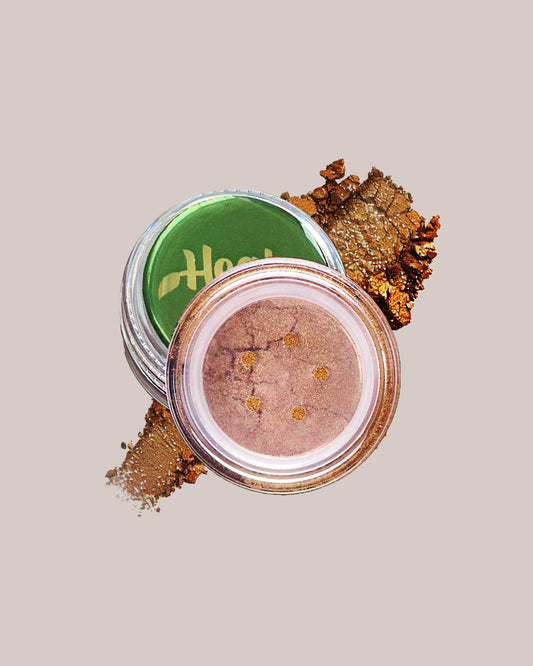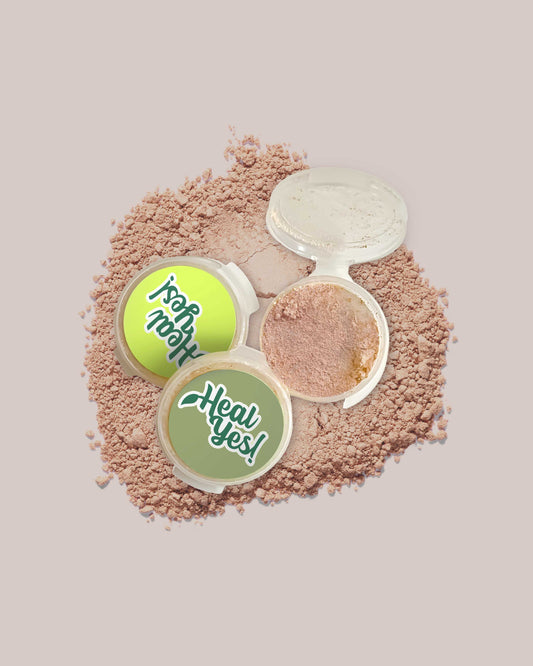Worst Carb-Loaded Foods That Cause Blood Sugar Spikes, Slow Metabolism, and Insulin Resistance
The Ultimate Guide to the Worst Carb-Loaded Foods That Cause Blood Sugar Spikes, Slow Metabolism, and Insulin Resistance
Carbohydrates are an essential part of a balanced diet, providing the body with much-needed energy. However, not all carbs are created equally. Some carb-loaded foods can cause a rapid spike in blood sugar levels, leading to insulin resistance and a slower metabolism. In this article, we'll take a detailed look at some of the worst carb-loaded foods and their impact on the body.
Understanding the impact of carbs on the body is crucial for maintaining good health. Carbs are broken down into glucose, which is used by the body for energy. However, some carbs are quickly broken down, leading to a rapid increase in blood sugar levels. This can cause the body to release more insulin, leading to insulin resistance and a slower metabolism. In this article, we'll explore the role of insulin and insulin resistance in the body and how carb-loaded foods can contribute to these issues.
Key Takeaways:
- Carb-loaded foods can cause a rapid spike in blood sugar levels, leading to insulin resistance and a slower metabolism.
- Understanding the impact of carbs on the body is crucial for maintaining good health.
- In this article, we'll explore the worst carb-loaded foods and their impact on the body, as well as provide tips for implementing a balanced diet.
Understanding Carbs and Their Impact
Carbohydrates, or carbs, are one of the three macronutrients that provide energy to the body. They are found in a variety of foods, including grains, fruits, vegetables, and dairy products. Carbs are broken down into glucose, which is used by the body for energy.
When you eat carbs, your body releases insulin, a hormone that helps transport glucose into your cells. However, eating too many carbs can lead to a spike in blood sugar levels, which can cause insulin resistance over time. Insulin resistance occurs when your cells become less responsive to insulin, which can lead to high blood sugar levels and an increased risk of type 2 diabetes.
Not all carbs are created equal. Some carbs, such as those found in whole grains and vegetables, are digested more slowly and have a lower impact on blood sugar levels. These are known as complex carbs. On the other hand, simple carbs, such as those found in sugary drinks and processed foods, are digested quickly and can cause a rapid spike in blood sugar levels.
It's important to be mindful of your carb intake and choose healthier sources of carbs to support your overall health and well-being. Incorporating a variety of whole grains, fruits, and vegetables into your diet can help provide the nutrients and energy your body needs without causing a spike in blood sugar levels.
The Role of Insulin and Insulin Resistance
Insulin is a hormone produced by the pancreas that helps regulate blood sugar levels. When you eat carbohydrates, your body breaks them down into glucose, which enters the bloodstream. Insulin then signals cells in the body to absorb the glucose and use it for energy or store it for later use.
However, when you consume too many carb-loaded foods, your body produces more insulin than it needs, leading to insulin resistance. Insulin resistance occurs when cells in the body become less responsive to insulin, making it harder for glucose to enter the cells and causing blood sugar levels to rise.
Over time, insulin resistance can lead to type 2 diabetes, weight gain, and other health problems. To prevent insulin resistance, it is important to limit your intake of carb-loaded foods and choose healthier options that are lower in carbs and higher in protein and fiber.
Some examples of carb-loaded foods that can spike your blood sugar and lead to insulin resistance include white bread, pasta, rice, sugary drinks, and processed snacks. By making simple changes to your diet, such as swapping out these foods for whole grains, vegetables, and lean protein sources, you can improve your metabolic health and reduce your risk of insulin resistance and other health problems.
Carb-Loaded Foods That Spike Blood Sugar
Carbohydrates are an essential part of a healthy diet, but not all carbs are created equal. Some carb-loaded foods can cause a rapid spike in blood sugar levels, leading to insulin resistance and a slow metabolism. In this section, we will discuss some of the worst carb-loaded foods that spike blood sugar.
Processed Foods
Processed foods are notorious for being high in refined carbohydrates and added sugars. These foods are often stripped of their natural fiber and nutrients, leaving behind a product that is quickly absorbed by the body and causes a rapid spike in blood sugar levels. Examples of processed foods that are high in carbs include crackers, chips, and breakfast cereals.
Sugary Drinks
Sugary drinks are a major contributor to the obesity epidemic and are linked to an increased risk of type 2 diabetes. These drinks are loaded with added sugars, which can cause a rapid spike in blood sugar levels. Examples of sugary drinks include soda, energy drinks, and fruit juices.
White Bread
White bread is made from refined flour, which is stripped of its natural fiber and nutrients. This leaves behind a product that is quickly absorbed by the body and causes a rapid spike in blood sugar levels. In addition, white bread is often high in added sugars, which can further exacerbate the problem.
Pasta
Pasta is a staple in many households, but it can be a major contributor to blood sugar spikes. Most pasta is made from refined flour, which is quickly absorbed by the body and causes a rapid increase in blood sugar levels. In addition, many pasta sauces are high in added sugars, which can further exacerbate the problem.
Pastries and Sweets
Pastries and sweets are often high in refined carbohydrates and added sugars. These foods are quickly absorbed by the body and cause a rapid spike in blood sugar levels. Examples of pastries and sweets that are high in carbs include cakes, cookies, and donuts.
By limiting or avoiding these carb-loaded foods, individuals can help regulate their blood sugar levels and improve their overall health.
How These Foods Slow Metabolism
Carb-loaded foods are notorious for their negative impact on metabolism. They can slow down the body's ability to burn calories efficiently, leading to weight gain and insulin resistance. In this section, we will explore how these foods slow down metabolism and the effects they have on the body.
Impact on Digestive System
Carb-loaded foods can be difficult for the digestive system to process, leading to a slower metabolism. When the body consumes a large amount of carbohydrates, the pancreas releases insulin to help regulate blood sugar levels. Over time, this can lead to insulin resistance, making it harder for the body to process carbohydrates and leading to a slower metabolism.
Influence on Energy Levels
Carb-loaded foods can also have a negative impact on energy levels. When the body consumes a large amount of carbohydrates, it can cause a spike in blood sugar levels, leading to a burst of energy. However, this burst of energy is often short-lived and followed by a crash, leaving the body feeling tired and sluggish. This can lead to a decrease in physical activity and a slower metabolism.
Effect on Weight Gain
Carb-loaded foods are often high in calories, which can lead to weight gain. When the body consumes more calories than it burns, it stores the excess as fat. This can lead to an increase in body weight and a slower metabolism. Additionally, carb-loaded foods can be addictive, leading to overconsumption and further weight gain.
Ultimately, carb-loaded foods can have a negative impact on metabolism, leading to weight gain and insulin resistance. By limiting consumption of these foods and focusing on a balanced diet, individuals can improve their metabolism and overall health.
Implementing a Balanced Diet
When it comes to maintaining a healthy diet, balance is key. Implementing a balanced diet can help prevent blood sugar spikes, slow metabolism, and reduce the risk of insulin resistance. Here are some tips to help you implement a balanced diet:
Choosing Complex Carbs
Choosing complex carbs over simple carbs can help regulate blood sugar levels and provide sustained energy throughout the day. Complex carbs are found in foods such as whole grains, vegetables, and legumes. These foods are high in fiber, which slows down the digestion process and prevents blood sugar spikes.
Incorporating Protein and Fiber
Incorporating protein and fiber into meals can help keep you feeling full and satisfied for longer periods of time. Foods such as lean meats, eggs, nuts, and seeds are good sources of protein. Meanwhile, fruits, vegetables, and whole grains are high in fiber. Combining these foods can help balance your meals and prevent overeating.
Understanding Portion Sizes
Understanding portion sizes is crucial for maintaining a balanced diet. Overeating can lead to weight gain and other health issues. Using measuring cups, food scales, and other tools can help you accurately measure portion sizes. Additionally, practicing mindful eating can help you listen to your body's hunger and fullness cues, preventing overeating.
By implementing a balanced diet that includes complex carbs, protein, fiber, and appropriate portion sizes, you can maintain a healthy weight and reduce the risk of insulin resistance.
Conclusion
In a nutshell, consuming carb-loaded foods in excess can lead to negative health outcomes, including blood sugar spikes, slow metabolism, and insulin resistance. It is important to be mindful of the types and amount of carbohydrates consumed in one's diet to maintain optimal health.
By choosing whole, unprocessed carbohydrates and balancing them with protein and healthy fats, individuals can support their metabolism and blood sugar levels. It is also important to limit or avoid highly processed and refined carbohydrates, such as white bread, sugary drinks, and candy.
Additionally, incorporating regular physical activity and maintaining a healthy weight can also support metabolic health and insulin sensitivity. By making small changes to one's diet and lifestyle, individuals can reduce their risk of negative health outcomes associated with carb-loaded foods.
Frequently Asked Questions
What are the five worst foods for blood sugar?
The five worst foods for blood sugar are arguably white bread, white rice, sugary drinks, candy, and pastries. These foods are high in refined carbohydrates and sugar which can cause a rapid spike in blood sugar levels.
What is the single-most worst carb?
The number one worst carb is added sugar. Added sugar is found in many processed foods, drinks, and snacks, and can cause a rapid spike in blood sugar levels. It's important to read food labels carefully and avoid products with added sugar.
What carbs are bad for insulin resistance?
Carbs that are bad for insulin resistance include refined carbohydrates and added sugars. These types of carbs can cause a rapid spike in blood sugar levels, leading to insulin resistance over time.
How can you tell where sugar enters the blood?
Sugar enters the blood through the digestive system. When you eat foods that contain carbohydrates, your body breaks them down into glucose, which enters the bloodstream and raises blood sugar levels.
What's the difference between carbohydrates and sugar?
Carbohydrates are a macronutrient found in many foods, including fruits, vegetables, grains, and dairy products. They provide energy to the body. Sugar is a type of carbohydrate that is naturally found in some foods, like fruits and dairy products, and is also added to many processed foods.
How does the body process sugar versus carbohydrates? Do they break down to the same product?
When considering how the body processes sugar compared to other carbohydrates, note that sugar is a subset of carbohydrates. Both undergo a similar digestion and absorption process:
During digestion, carbohydrates, whether simple sugars or complex starches, are broken down into individual glucose molecules. These glucose molecules are then absorbed into the bloodstream, transported to cells, and serve as a primary source of energy for the body.
The primary difference lies in the complexity of the carbohydrate molecules consumed, with sugars being simpler and quickly digestible, while complex carbohydrates take longer to break down.
Despite this difference, the end product, glucose, is utilized by the body in a similar manner.
What are two bad carbohydrates that spike blood sugar levels fast?
Two bad carbohydrates that spike blood sugar levels fast are refined carbohydrates and added sugars. These types of carbs are found in many processed foods, drinks, and snacks, and can cause a rapid spike in blood sugar levels. It's important to choose whole, unprocessed foods whenever possible to avoid these types of carbs.
Are there herbs that can help counteract the effects of excessive carb or sugar consumption?
Berberine: This compound, found in various plants, has been studied for its potential to support healthy blood sugar levels.
Fenugreek: Some research suggests that fenugreek may help lower blood sugar levels and improve insulin function.
Gymnema Sylvestre: Known as the "sugar destroyer," this herb has been traditionally used to support glucose metabolism.
Turmeric: The active compound in turmeric, curcumin, may have anti-inflammatory and blood sugar-regulating properties.
While these foods and herbs may offer potential benefits, maintaining a balanced diet, regular physical activity, and consulting with a healthcare professional are crucial for overall health and blood sugar management.

















